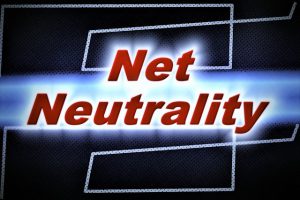22
Appellate court upholds net neutrality rules?
The appellate court upheld the net neutrality rules set in place by the Federal Communications Commission (FCC), refusing appeals on those rules in requests from Internet service providers (ISPs) and commerce groups. This section of law gives the FCC regulatory authority over common carriers engaged in foreign or interstate communication to prevent them from discriminating among consumers or making excessive charges.
The reason web neutrality came up in the American political discussion in late 2014 has to do with prioritization that is paid. Paid prioritization is an understanding in which a broadband service provider and a content provider that results in the content supplier being given priority access at congested Internet nodes negotiate an arrangement. The Obama administration came out firmly on this issue of paid prioritization, calling for it to be expressly prohibited by the FCC. The White House also called for rules preventing ISPs from by choice restraining any type of data transmission or blocking content. By the end of September 2014, the FCC had received 3.7 million public opinions on the issue of web neutrality.
While high ranking Democrats have taken the following upholding of the FCC’s regulatory authority in court, and the web neutrality framework, as a major triumph, Republicans have been critical of the regulatory regime. Washington political blog The Hill reported after the opinion that Congressional Republicans were interested in drafting a reform bill for web neutrality, which believe establishes an overreach of government authority.
Since the issue became extensively discussed in political groups a couple of years past we here at IPWatchdog have composed on the issue of web neutrality. Yet, as we’ve discussed before, the manner web is being executed in the United States dangers stagnation to Internet services by favoring content suppliers over the ISPs who could create new types of delivering Internet services.
It’s helpful at this juncture to identify as they’re now laid out just who gains from net neutrality rules. The web neutrality argument has been broadly framed as a regulatory means to ensure that some of the smallest players online stand a fighting chance and aren’t compelled to pay for priority distribution or threat relegation to a sort of second class Internet. Nevertheless, evaluation of the determination by Fortune and 24/7 Wall St. claims that leading content suppliers like Netflix (NASDAQ:NFLX), Facebook (NASDAQ:FB), Amazon, YouTube and Hulu are clear early victor of D.C. Cir.’s determination to carry on web neutrality rules. When comparing market capitalization between the content providers and ISPs and subscriber bases, the disagreement that web neutrality supports the “small man” content supplier against the big awful ISP starts to lose its flavor. Netflix, for instance, announced in its first quarter 2016 gains press release that it’d 81.5 million subscribers world-wide, 58 percent (47.3 million) of which are in the United States. That’s more than double Comcast’s whole U.S. broadband subscriber base. These content providing businesses are now able to continue to run in market dominant positions without being charged by ISPs which are smaller when it comes to shareholder value and subscriber base.
There ’s the possibility the prohibition on paid prioritization could wind up costing consumers more money out of pocket for Internet access. Evaluation was additionally released by fiscal magazine Forbes in the recent web neutrality court judgement on winners and losers. The writer giving the post claimed that ISPs might consider a type of unit-based pricing for Internet access; instead of paying for a specific degree of data transmission speed, ISPs could look at billing for the number of information used up.
In addition, it damages the basis for web neutrality that proponents of the theory in America take a negative view of such regulatory authority elsewhere on the planet. Already, nevertheless, Facebook has run into problems with telecom regulators in India for its Free Basics application, a service offering Indian consumers basic Internet access. TRAI determined to prohibit Free Basics based on its ability to prohibit differential pricing for information services. Web neutrality was broken by Facebook’s Free Basics, it was claimed, because programs reachable on that platform made up zero-evaluation, or a practice by which some Internet services are exempt from a limitation on information which would impact other services.
Zero-evaluation can be considered as an inverse to paid prioritization; instead of billing big content suppliers for socalled “fast lane” access, information transmitted by zero-rated programs don’t count against a data limitation, making those programs somewhat more precious to consumers. Where Facebook is the content supplier, web neutrality is not bad for company. But in India, where Facebook is the ISP, web neutrality is not good for business.
The execution of web neutrality at the FTC would appear to make more sense, particularly as it is often framed as an issue of consumer access to information services. The FCC controls communicating, not consumer accessibility, although it is given some power in this area by the Title II common carrier provisions. The FTC, however, loses its regulatory authority over consumer services suppliers when those suppliers are classified as common carriers.
An address given by FTC Commissioner Maureen Ohlhausen delves somewhat more deeply into the battle between both bureaus over web neutrality. As Ohlhausen notes, more enforcement isn’t always the best for consumers and that enforcement is approached by the two bureaus rather otherwise, with the FCC willing to issue fines for violations of actions. “I ‘m worried that what seems to be a ‘strict liability’ data security standard will really hurt consumers,” Ohlhausen said. “The aim of consumer protection enforcement isn’t to make headlines; incentivize proper practices… and it would be to make hurt consumers entire If an enforcement demands costs disproportionate to the real consumer damage, that enforcement actions may make consumers worse off if prices rise or initiation slows.”







There are no comments.